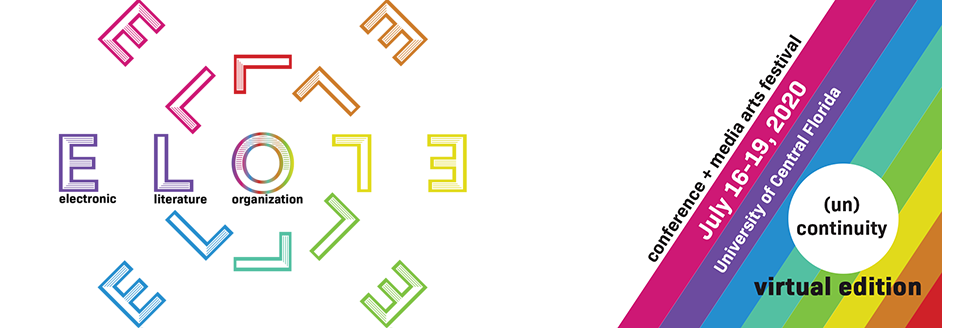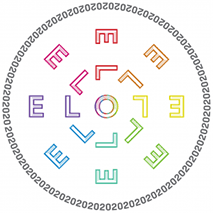Submission Type
Conference Proceedings Paper
Abstract
Steve Meretzky’s 1985 A Mind Forever Voyaging functions as the first major text-adventure which does not structure its interactions around challenging, often cryptic, puzzles. Instead, the work allows readers to observe and record social change leisurely, requiring one to match wits with one’s imagination more so than the computer. This development of puzzleless interactive fiction has had forward-leaning influence. Chris Klimas’ development of Twine traces back in design philosophy to Meretzky’s innovations here, and autobiographic explorations in the medium develop then from this shift away from puzzles toward more subjective experiences. In addition to this forward influence, however, I trace the development back through a long lineage to William Wordsworth’s grappling with his own poetic problem starting in the late 18th century.
Wordsworth’s autobiographical epic poem The Prelude details the growth of his mind through formative moments. Understanding the development of his imagination in this way serves a crucial role in attempting to progress a larger poetic project concerned with the aftermath of the French Revolution. A Mind Forever Voyaging takes its title from Wordsworth’s Prelude, as well as parallels the general structure just described. In Meretzky’s work, you play as an artificial intelligence tasked with assessing the long-term ramifications of what is meant to approximate Ronald Reagan’s political and social policies. To this end, the artificial intelligence lived a full simulated life, to grow its own imagination through formative moments. This imaginative faculty enables a form of foresight into the localized reality of abstract political data.
As players take on the role of a witnessing subject, challenging puzzles are replaced by personal attunement to minor social and domestic details. I trace Wordsworth’s and Meretzky’s work out in parallel to argue for the need for wider literary histories of the medium. As I show, what happens between Meretzky and Klimas is not an isolated literary development of the late 20th century, but emerges from a Romantic aesthetic program to which the innovation in this foundational interactive fiction here belongs.
Included in
Communication Technology and New Media Commons, Literature in English, British Isles Commons
From Wordsworth’s Poetic Problem to Puzzleless Interactive Fiction
Steve Meretzky’s 1985 A Mind Forever Voyaging functions as the first major text-adventure which does not structure its interactions around challenging, often cryptic, puzzles. Instead, the work allows readers to observe and record social change leisurely, requiring one to match wits with one’s imagination more so than the computer. This development of puzzleless interactive fiction has had forward-leaning influence. Chris Klimas’ development of Twine traces back in design philosophy to Meretzky’s innovations here, and autobiographic explorations in the medium develop then from this shift away from puzzles toward more subjective experiences. In addition to this forward influence, however, I trace the development back through a long lineage to William Wordsworth’s grappling with his own poetic problem starting in the late 18th century.
Wordsworth’s autobiographical epic poem The Prelude details the growth of his mind through formative moments. Understanding the development of his imagination in this way serves a crucial role in attempting to progress a larger poetic project concerned with the aftermath of the French Revolution. A Mind Forever Voyaging takes its title from Wordsworth’s Prelude, as well as parallels the general structure just described. In Meretzky’s work, you play as an artificial intelligence tasked with assessing the long-term ramifications of what is meant to approximate Ronald Reagan’s political and social policies. To this end, the artificial intelligence lived a full simulated life, to grow its own imagination through formative moments. This imaginative faculty enables a form of foresight into the localized reality of abstract political data.
As players take on the role of a witnessing subject, challenging puzzles are replaced by personal attunement to minor social and domestic details. I trace Wordsworth’s and Meretzky’s work out in parallel to argue for the need for wider literary histories of the medium. As I show, what happens between Meretzky and Klimas is not an isolated literary development of the late 20th century, but emerges from a Romantic aesthetic program to which the innovation in this foundational interactive fiction here belongs.




Bio
Timothy Wilcox earned his Ph.D. in English from Stony Brook University, where he also completed a Doctoral Certificate in Art & Philosophy. He published an essay, “Embodying Failures of the Imagination: Defending the Posthuman in The Surrogates,” in the collection Cyberpunk and Visual Culture (Routledge). Combining dual specialization in digital era literature and British Romanticism, he is working on a project detailing the Romantic influence on early works of electronic literature. More broadly, he explores the imaginative challenges at work in literary engagements and active disengagements with digital technology.